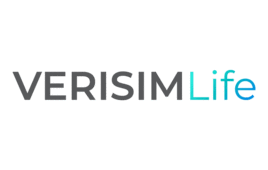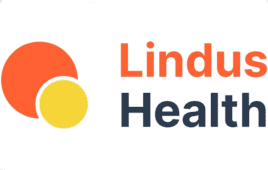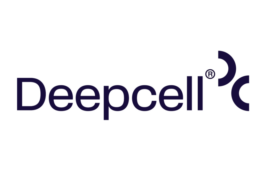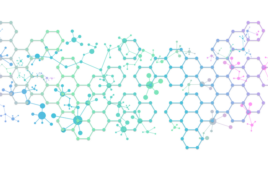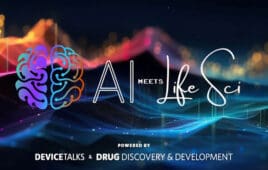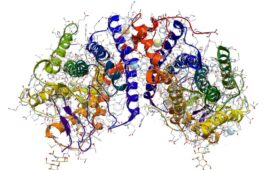Will the credit for future mega-blockbuster drugs, in some cases, go to a carefully-programmed AI discovery system connected to a “self-driving lab” that verified its potential? Certainly, AI is hyped, but so are potential profits of potentially AI-optimized drugs. The exploding volumes of scientific data highlight a shift often overlooked: what does “inventor” even mean when…
Off with the training wheels: AI-based patient characterization can improve clinical trial performance without large data sets
Only 12% of new drug candidates that enter phase 1 clinical development ultimately receive FDA approval. This dismal success rate leaves millions of patients with unmet medical needs and drives up the costs for the small number of drugs that make it to market. More frustratingly, it leaves untold numbers of potentially transformative therapies back-burnered…
BIOiSIM assigns ‘credit scores’ to drug candidates
VeriSIM Life, a San Francisco-based startup, has created BIOiSIM, an AI-powered platform that simulates drug compound behavior in the human body by acting like a virtual laboratory. It assigns each a predictive “credit score” predicting its viability for drug development. “It’s like a FICO score for drug development,” founder and CEO Dr. Jo Varshney said.…
Fauna Bio CEO on tapping extreme mammals for human disease breakthroughs
Could the genetic secrets of “extreme mammals” help unlock treatments for myriad human diseases? The Emeryville, California–based startup Fauna Bio is betting on that premise. One of the animals the firm is studying include the 13-lined ground squirrel, which can double its body weight in fat accumulation in summer before entering hibernation in an obese…
Alliance with Google Cloud the latest to help Atropos Health bridge the evidence gap in medicine
The Stanford spinout Atropos Health, which taps real-world data to analyze patient outcomes, disease trajectories, treatment effectiveness, is joining forces with Google Cloud. The company had already forged an alliance with AWS to offer its real-world evidence offerings on the AWS Marketplace and join the AWS Partner Network. The company’s core aim is to give…
How digital pathology can transform the value of clinical trial information
The field of pathology is gradually going digital, marking a pronounced shift from the traditional use of glass slides, a practice that dates back to the Victorian era. Digital pathology uptake reached an “exponential” pace in the wake of the pandemic, noted Dr. Monika Lamba Saini, pathologist-scientist, director of digital innovation at Q2 Solutions, an…
Interview: MIT legend Robert Langer backs Lindus Health’s ‘anti-CRO’ strategy
Biotech startup Lindus Health just made a big splash by adding MIT professor and Moderna co-founder Robert Langer, Sc.D., to its advisory board. Lindus aims to shake up the world of clinical trials with its “anti-CRO” approach that promises faster and more reliable trials for life sciences companies. The addition of Langer, described as the…
Inside Amgen’s ATOMIC strategy to use ML to accelerate clinical trials
Amgen has developed a machine learning platform to slash clinical trial times through smarter site selection. Known as ATOMIC, short for Analytical Trial Optimization Module, the system crunches disparate datasets to predict optimal trial locations, expedite enrollment and trial processes. Early results indicate more than a two times increase in enrollment speed at ATOMIC sites.…
Supercomputer-based Bayesian approach to AI pays dividends for BPGbio
In an AI hype-filled biopharma industry, one company is taking a back-to-basics yet supercomputer-powered approach — using Bayesian analysis on massive patient datasets to guide drug discovery. The company crunches trillions of data points per patient. “It’s massive, which is why we use a supercomputer,” said Niven R. Narain, Ph.D., BPGbio CEO. The company has…
Moving beyond buzzwords: When will a rising AI tide lift all Big Pharma boats?
For all of the talk about AI in drug discovery and development, few Big Pharmas are putting up big bucks in AI spending. A CRB survey from late 2023 painted a conservative picture: about half of drug developers planned on allocating between $1 and $10 million for data and AI projects over the next two…
Antibody-drug conjugates, genomics, and more: Key trends at the JP Morgan Healthcare Conference
The 2024 JPMorgan Healthcare Conference showcased the resilience and innovation driving the biotech sector, even as the sector has recently grappled with financial headwinds such as declining IPOs, layoffs, and tightening cash reserves. Companies are tightening operations while still pushing forward in developing novel technologies like machine learning for drug discovery, cell and gene therapies,…
Quantum promises a bright future for the pharma industry
Quantum computing technology continues to advance closer to an everyday reality. While the potential applications of quantum in certain sectors are more speculative, the pharmaceutical industry is poised to be transformed by quantum technology.This sector is likely to be the fastest to unlock the benefits of quantum computing, once the technology is fully realized. But…
Deepcell’s CEO forges her own path to transforming cell science with AI and microfluidics
Deepcell co-founder Maddison Masaeli took an unexpected path from academic research to launching an AI-powered cell analysis platform. The company has raised close to $100 million in funding to support its mission. This includes a $73 million Series B round and an earlier $20 million Series A round. The company has entered into a research…
Biotech bounces back at JPM 2024 on optimism, breakthroughs and calculated bets, but uncertainties persist
At the dawn of 2024, there’s a sense of renewed optimism in the biotech sector despite recent sector-specific challenges. This week, the JP Morgan Health Care Conference witnessed strong deal-making activity. For instance, Merck agreed to acquire cancer drug developer Harpoon Therapeutics for roughly $680 million, highlighting continued interest in oncology cancer therapies. Meanwhile, Novartis…
Recursion partners with NVIDIA to unveil Phenom-Beta, democratizing access to its $1 Billion phenomics investment
In sync with the JP Morgan Health Care Conference, Recursion Pharmaceuticals has unveiled Phenom-Beta, a deep learning model designed to transform cell microscopy images into meaningful biological representations. “Phenom-Beta allows you to take images of human cells from a microscope or other sources and turn them into mathematical representations of biology,” said Chris Gibson, CEO…
Amgen, Deepcell tap NVIDIA’s AI to drive drug discovery and advance cell morphology research
In 2023, generative AI (GenAI) entered the mainstream, capturing the attention of both the public and a growing number of biotechs. One of the most prominent Big Tech firms driving the trend is NVIDIA, which has forged alliances with biotechs ranging from Genentech, Recursion Pharmaceuticals and Evozyne, among others. The momentum is continuing in early…
Medable: AI-powered platform can halve trial build times
Decentralized clinical trial pioneer Medable unveiled an intelligent automation technology at the JP Morgan Health Care Conference, claiming it can slash standard trial build timelines by at least 50%. This development hinges around electronic clinical outcomes assessment (eCOA) — a common bottleneck in trial startups. “We’ve used AI to essentially take a protocol and translate…
The global biotech funding landscape in 2023: U.S. leads while Europe and China make strides
In 2023, the U.S. continued to demonstrate its position as the biotech funding leader, commanding over one-third, 35%, of the global investment in the sector. Overall, U.S. biotech firms attracted $56.79 billion in funding, according to a survey of Crunchbase data. Next in line was China, which contributed about 12.7% to the global funding pool,…
What’s next for biotech? Q4 2023 funding trends point beyond the usual suspects
Oncology may continue be one of the hottest sectors across the pharma sector, but other therapeutic areas are catching up in terms of innovation and investment. While oncology and hematology jointly accounted for about one-third of the new FDA approvals in 2023, investors are increasingly betting on precision medicine, advanced drug delivery systems and the use of…
ConcertAI acquisition will boost CancerLinQ data capabilities with AI focus
The AI oncology startup ConcertAI recently acquired CancerLinQ, one of the largest oncology real-world data and quality of care technology service entities. Originally developed by the American Society of Clinical Oncology (ASCO) in 2013, CancerLinQ aims to use real-world data and technology to improve cancer care and advance evidence-based research. CancerLinQ has developed one of…
Using AI to unlock new uses for existing cancer medicines
Repurposing is a drug development strategy that has been widely applied in cancer. This strategy, sometimes called label expansion, involves obtaining FDA approval to market a drug for the treatment of new indications, alone or in combination with other drugs. Not only can this approach extend the window of patent protection for a commercialized drug,…
Microsoft and 1910 Genetics are discovering health data’s hidden gems: Here’s how
In episode 2 of AI Meets Life Sci, DeviceTalks Managing Editor Kayleen Brown, and Pharma Editor Brian Buntz explore how Big Tech is developing artificial intelligence (AI) infrastructure in a variety of healthcare organizations. Elena Bonfiglioli, global business leader for Health and Life Sciences at Microsoft, weighs in on the subject, also sharing that she…
Unlocking generative AI requires reshaping culture, operations, and talent dynamics
In drug discovery and development, generative AI and natural-language processing (NLP) tools promise more than incremental productivity gains. For companies that can integrate such tools strategically into their workflows, the tools open the door to a fundamental rethinking of operational processes. For instance, generative AI tools can accelerate drafting of research articles, novel target identification,…
EDC fading in prominence as AI and cloud gain ground
In a year or two, the clinical trial industry may move beyond electronic data capture (EDC), a technology that has been the cornerstone of clinical data management for decades, projects Raj Indupuri, CEO of eClinical Solutions. Given the potential of electronic medical records (EMR) to feed directly into data infrastructure, the need for EDC may…
AWS-NVIDIA gen-AI alliance epitomizes Big Tech’s growing interest in drug discovery
The allure of healthcare has long captivated Big Tech giants. Over the past fifteen years or so, several prominent companies in the sector have ventured into the life sciences sector with ambitious projects, only to often find themselves retreating. The dynamic appears to be changing, particularly in drug discovery, thanks in part to burgeoning data…



